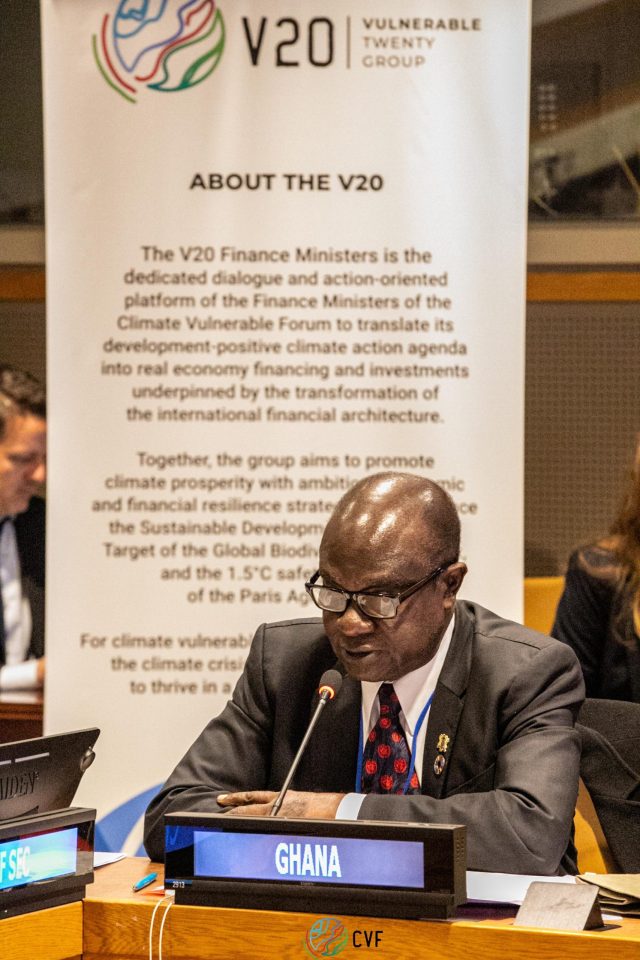During the recent CVF meeting at the UNGA, Ghana’s officials underscored the financial barriers that impede climate action in vulnerable nations.
Professor George Gyan-Baffour’s remarks highlighted the staggering $946.7 billion debt burden faced by V20 countries, revealing the critical need for international financial reform.
At the 79th United Nations General Assembly, Professor George Gyan-Baffour, representing Ghana’s Finance Minister Dr. Mohammed Amin Adam, emphasized the CPPs’ role in mobilizing resources for climate resilience.
According to him, it is important to recognise CPPs as a crucial framework for mobilizing resources to combat climate change.
Professor George Gyan-Baffour highlighted the significant financial barriers faced by vulnerable nations, including high debt levels and the cost of capital, which impede their ability to invest in climate resilience.
“V20 countries face a staggering total external public and publicly guaranteed debt of about US$946.7 billion,” he stated, underscoring the urgent need for financial reform to make debt more manageable for vulnerable countries.
The CVF/V20 continues to advocate for international financial reforms aimed at redirecting global financial resources toward green and resilient investments.
He pointed to the Accra to Marrakech agenda, guided by four core principles, as a roadmap for creating a sustainable global economy while addressing climate challenges.
The pressing issues of high debt levels and the exorbitant cost of capital restrict the ability of these nations to invest in necessary climate resilience initiatives.
The forum advocates for a comprehensive financial restructuring that prioritizes green investments and enhances access to climate finance.
The Accra to Marrakech agenda serves as a guiding framework, aiming to implement financial strategies that align with the sustainability goals of the CPPs.
Key reforms discussed include creating financial instruments that facilitate lower borrowing costs for climate-related projects and developing a new global approach to carbon financing.
Ghana’s leadership in the CVF has led to significant developments, such as the establishment of an independent secretariat and an increase in CVF membership from 56 to 70 countries.
As the transition of leadership to Barbados approaches, the hope is that the momentum gained under Ghana’s presidency will be sustained, fostering an environment conducive to financial reform and climate action.
















